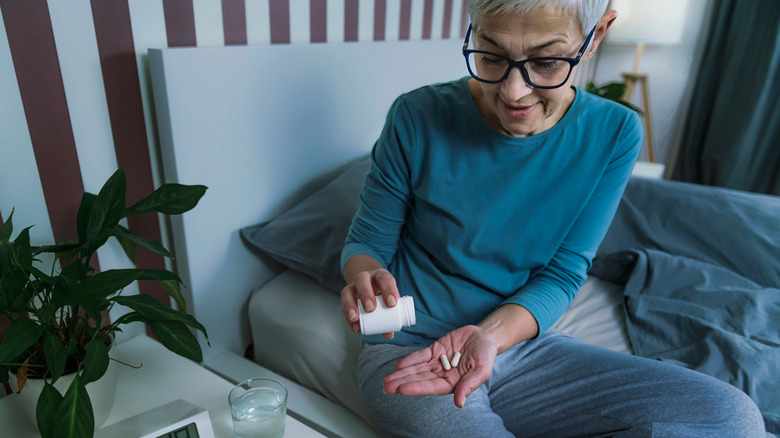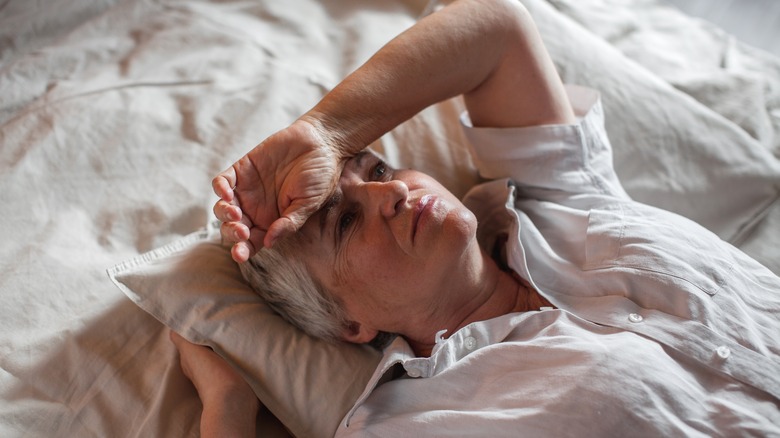Are Americans Too Dependent On Sleep Aids?
Nearly 1 in 5 Americans employ the regular use of over-the-counter or prescription medication to help them fall asleep, according to a report released by the National Center for Health Statistics.
With as many as 70 million people in the United States suffering from some sort of sleep-related disorder, it's no wonder so many Americans are seeking relief from sleep aids (per The Sleep Doctor). And while not getting enough sleep can lead to dangerous health conditions like heart disease, obesity, and dementia, experts worry that the frequent or prolonged use of sleep medication could also have negative implications on users' health (per The Washington Post).
When sleep aids are used improperly, the risk of dependency increases, as reported via CNN. Once the body becomes dependent on sleep aids, it may become harder to fall asleep without them, and suddenly ceasing use could trigger concerning withdrawal symptoms — like seizures. For that reason, experts don't recommend using sleep aids for longer than two weeks. However, the CDC report reveals that many people aren't using them as directed.
Who's taking sleep medication?
The report – using data collected by the National Health Interview Survey in 2020 — gave insight into how 30,549 adults used sleep medication over the course of 30 days. While 82% of participants said they never took sleep aids during that time, 10% said they took them some days, 2% took them most days, and 6% admitted to taking them every night.
The report also revealed that — across all races, age groups, and income brackets — women were more likely to use a regular sleep aid than men. Frequent use of sleep medication was also found to be more common amongst people below the poverty line — which CNN says could be a symptom of financial stress.
What's more, older Americans are using sleep aids far more than younger adults, according to the report. While a little less than 6% of people between the ages of 18-44 used sleep medication, that number increased to 10% in people between the ages of 45-64, and 12% in people over 65. This comes just a week after a 2023 study published in the Journal of Alzheimer's Disease found that frequent use of sleep aids may increase the risk of dementia in seniors.


